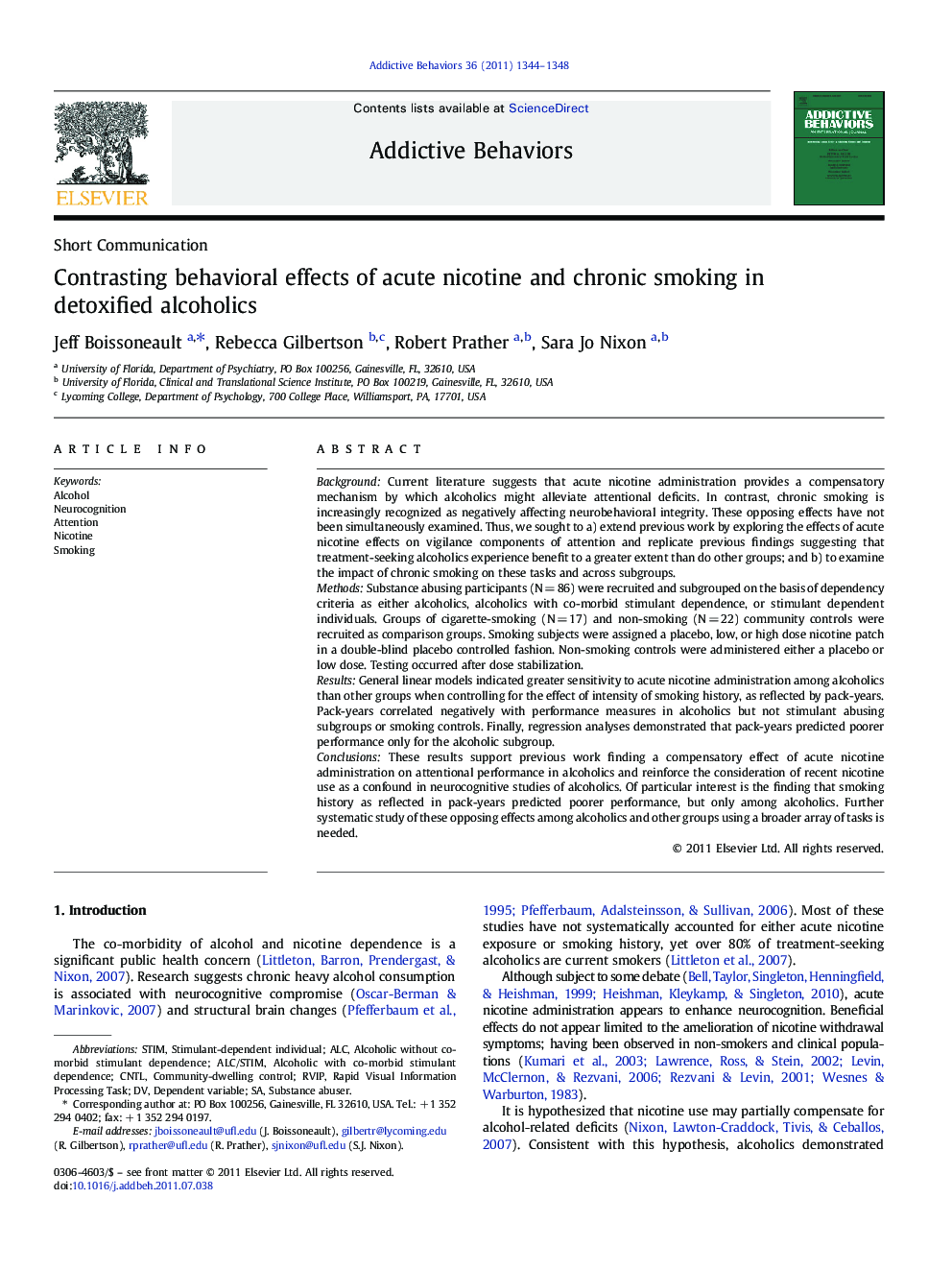| Article ID | Journal | Published Year | Pages | File Type |
|---|---|---|---|---|
| 899570 | Addictive Behaviors | 2011 | 5 Pages |
BackgroundCurrent literature suggests that acute nicotine administration provides a compensatory mechanism by which alcoholics might alleviate attentional deficits. In contrast, chronic smoking is increasingly recognized as negatively affecting neurobehavioral integrity. These opposing effects have not been simultaneously examined. Thus, we sought to a) extend previous work by exploring the effects of acute nicotine effects on vigilance components of attention and replicate previous findings suggesting that treatment-seeking alcoholics experience benefit to a greater extent than do other groups; and b) to examine the impact of chronic smoking on these tasks and across subgroups.MethodsSubstance abusing participants (N = 86) were recruited and subgrouped on the basis of dependency criteria as either alcoholics, alcoholics with co-morbid stimulant dependence, or stimulant dependent individuals. Groups of cigarette-smoking (N = 17) and non-smoking (N = 22) community controls were recruited as comparison groups. Smoking subjects were assigned a placebo, low, or high dose nicotine patch in a double-blind placebo controlled fashion. Non-smoking controls were administered either a placebo or low dose. Testing occurred after dose stabilization.ResultsGeneral linear models indicated greater sensitivity to acute nicotine administration among alcoholics than other groups when controlling for the effect of intensity of smoking history, as reflected by pack-years. Pack-years correlated negatively with performance measures in alcoholics but not stimulant abusing subgroups or smoking controls. Finally, regression analyses demonstrated that pack-years predicted poorer performance only for the alcoholic subgroup.ConclusionsThese results support previous work finding a compensatory effect of acute nicotine administration on attentional performance in alcoholics and reinforce the consideration of recent nicotine use as a confound in neurocognitive studies of alcoholics. Of particular interest is the finding that smoking history as reflected in pack-years predicted poorer performance, but only among alcoholics. Further systematic study of these opposing effects among alcoholics and other groups using a broader array of tasks is needed.
► This was a placebo controlled study of regular smokers. ► Acute nicotine effects on cognition were studied. ► Performance was measured on attention/working memory tasks. ► Nicotine improved task performance in non-stimulant dependent alcoholics. ► Intensity of chronic smoking predicted poorer performance in alcoholics.
